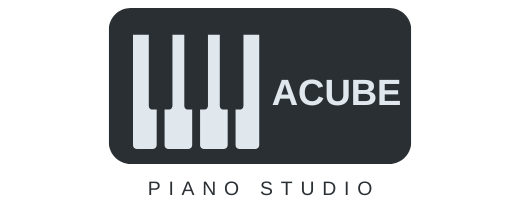Welcome to ACube Piano Studio!
ACube Piano Studio is founded by RL Wong, to share the joy of music and playing the piano through the 4 important skills: Listen, Play, Read and Write.
At ACube Piano Studio, you’ll find piano tutorials and piano video lessons to help you get started playing the piano, and go beyond. We also cover music theory, as I am a firm believer that to learn any language, including music, you need to be able to understand the language, and that is music theory.
If you want to learn the piano, join our Membership site where you’ll get access to hundreds of tutorials (and counting).
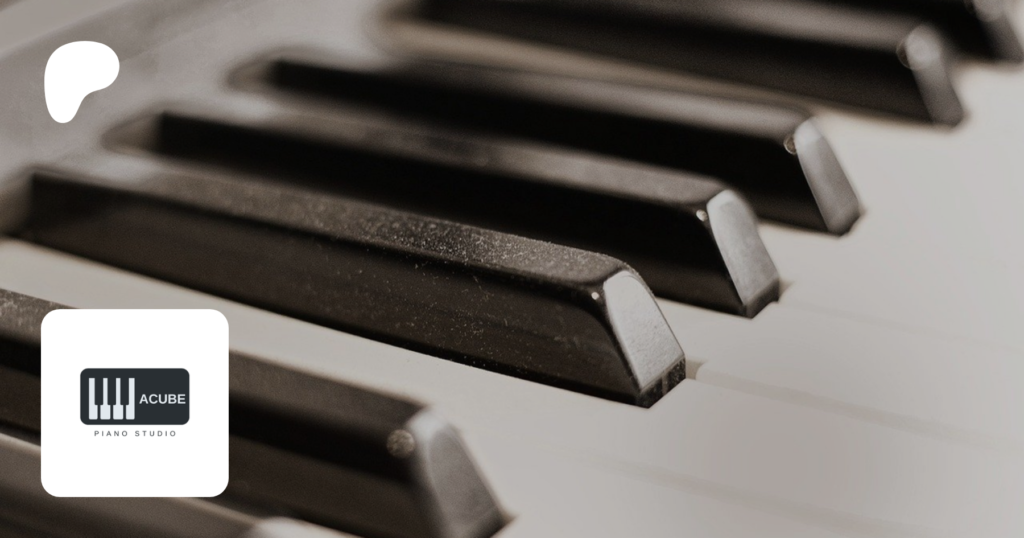
Featured Courses in Our Piano Membership Portal:

This is the first course for anyone who’s just getting started with the piano or keyboard for the first time. Learn notes on the piano, how to curve your fingers, your sitting posture and more.

Learning scales and arpeggios is an integral part of learning to play the piano. Learn all the major/ minor scales and their arpeggios, and chromatic scales here! Knowledge of sheet music is not required for this course. We’ll be using keyboard diagrams to guide you through.

Canon in D is one of the most popular piano pieces. While simple in melody, its soothing and beautiful melody makes it popular everywhere, from movies and commercials, to relaxing music and so on. This is one of the piece that my adult beginner students sought after; and here’s the piano tutorial arranged for piano beginners, while preserving its beautiful melody.

Prelude in C may seem hard for piano beginners, but really, many of my students play it in their first year of piano. There’s little left-right hand coordination, the rhythmic and melodic pattern is almost the same throughout the entire piece. In this piano tutorial, I go bar by bar how to play this beautiful piano piece.

While it’s true that you can play lots of music without being able to “read” sheet music, not being able to read sheet music means you basically have to memorize the notes to play a piece. And how much you can play is basically limited by your memory. Just by knowing how to read basic sheet music, you open up many more repertoires. In this course, I go through the basics that you’ll need to be able to pick up a music score and play.

This course is an extension to the read sheet music course. Once you are able to read sheet music, it’s time to try sight reading. In this piece, we’ll learn through examples, how to sight read music pieces for piano. I’ll go through some steps you can follow in the process, so that you can apply to other pieces too!
As many of our students are children and teenagers, we know the importance of accreditation for them. We also prepare our students for the ABRMS and Trinity exams. Many have achieved Distinction and Merit for the theory exams.
You can access to all our learning materials to help prepare for the ABRSM or Trinity Music Theory Exams anytime, anywhere with our Music Theory Membership.
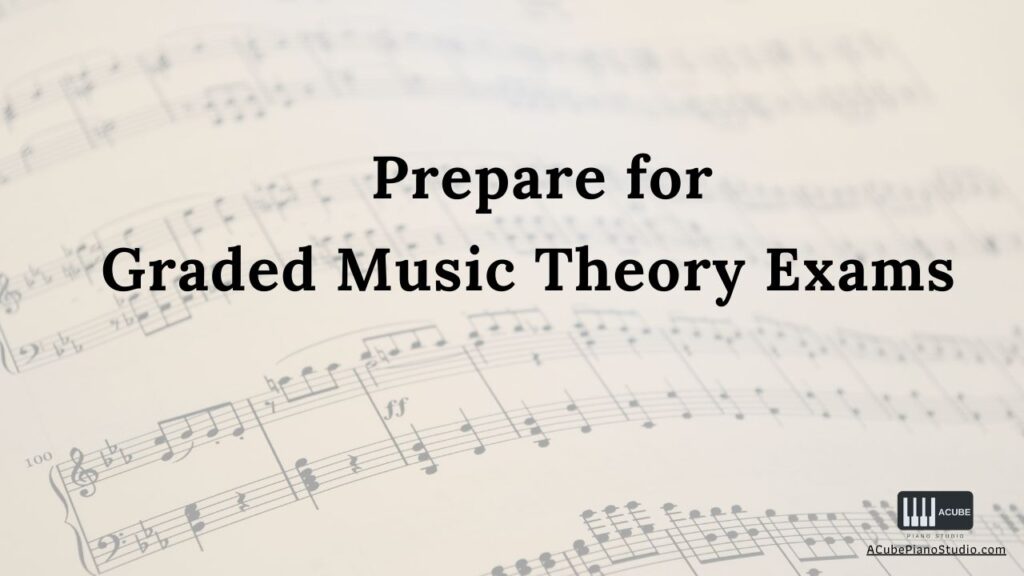
Reviews
Here’s what our students say of our courses:
Students’ Accomplishments
At ACubePianoStudio.com, we believe in nurturing all-round musicians. Music is more than just playing the right notes—it is about creativity, expression, discipline, and joy. That’s why our program is designed not only to build strong technical foundations but also to give students opportunities to perform, create, and grow in confidence.
We encourage our students to take graded music exams because they provide a clear structure and milestones to work toward. For children especially, exams are an excellent way to set achievable goals, track progress, and stay motivated. Preparing for an exam teaches them discipline, time management, and perseverance—valuable skills that extend far beyond music. Exams also give children a sense of accomplishment when they pass, boosting their confidence. More importantly, exams are not just about performance; they include listening skills, sight-reading, and music theory, ensuring that students grow into well-rounded musicians rather than just players of individual pieces.
Competitions, on the other hand, offer a very different but equally valuable experience. Performing in front of an audience helps children develop stage presence and confidence, while also teaching them to manage nerves and perform under pressure. Competitions also build resilience, as students learn to handle both success and disappointment with grace. By watching and listening to their peers, they are exposed to new music, styles, and techniques, which can be incredibly inspiring. Beyond winning or losing, competitions are about celebrating effort, recognizing dedication, and experiencing the joy of sharing music with others.
By balancing the structure of exams with the experience of competitions, our music school ensures that students don’t just learn to play. They grow into confident, versatile, and expressive musicians who can carry these skills with them for life.
Here are some of the certificates of our students:
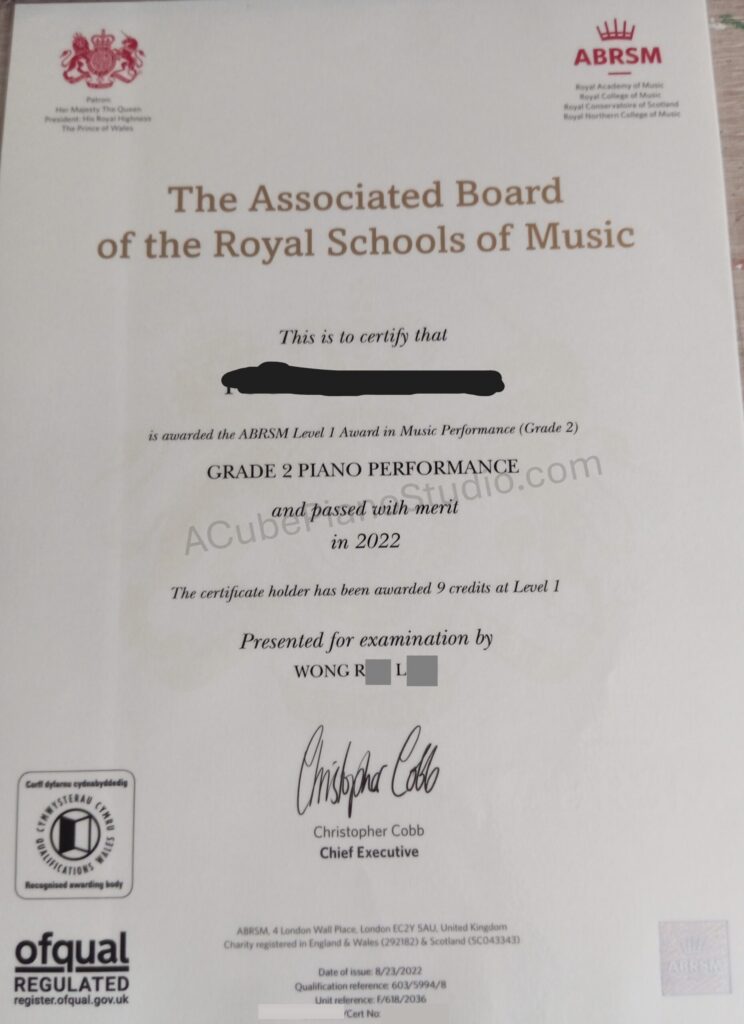
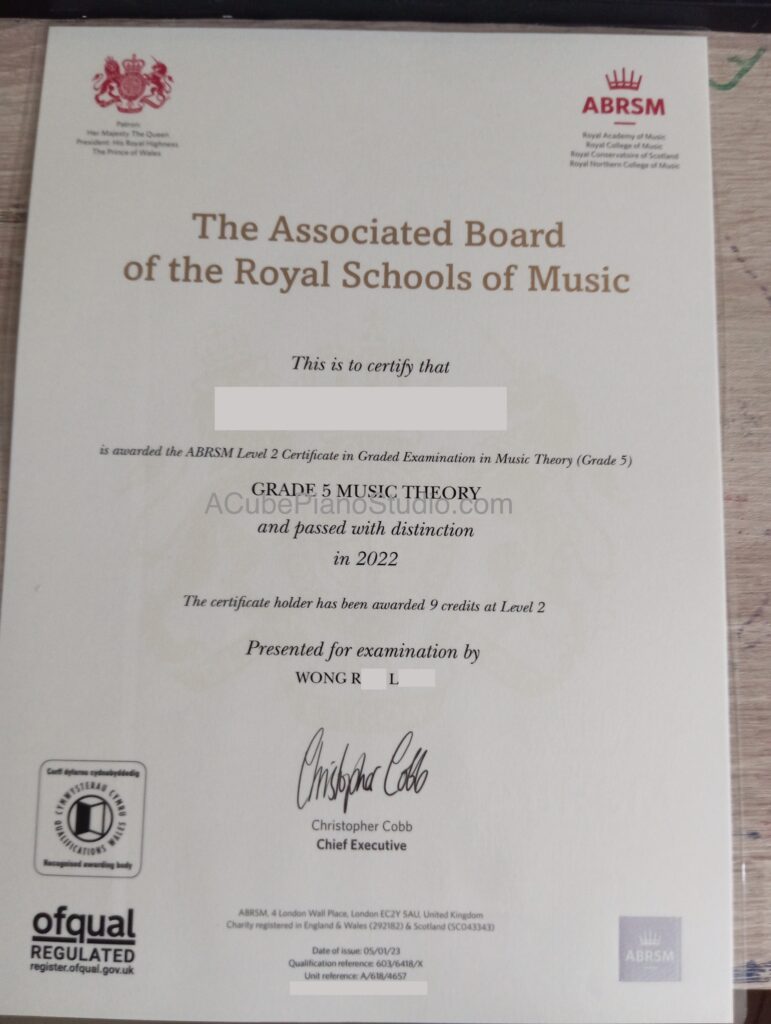
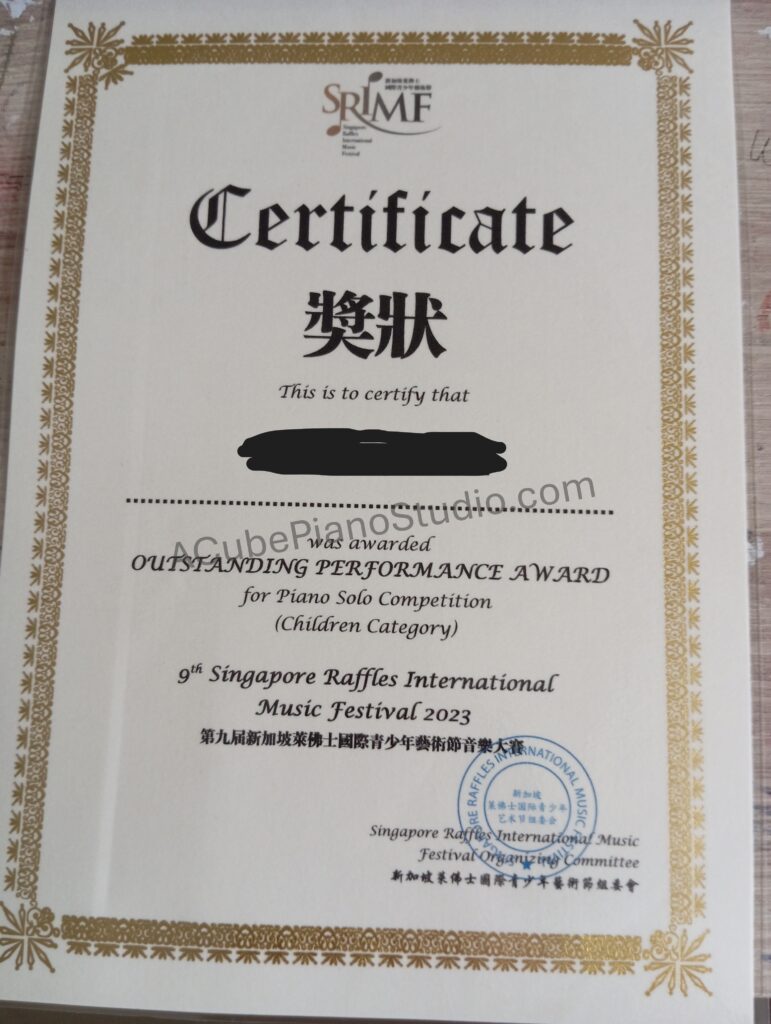
Congratulations to our students for their hard work and motivations to receive such great results!
Join Us Now
Our Youtube Channel
Subscribe to our Youtube Channel to learn more about playing the piano and learning music.
Compositions by RL
Listen to Classical Music
Here are the some of the classical music pieces I am teaching or have arranged:
Our Mailing List
Subscribe to our mailing list for updates, freebies, discount codes, and more.
